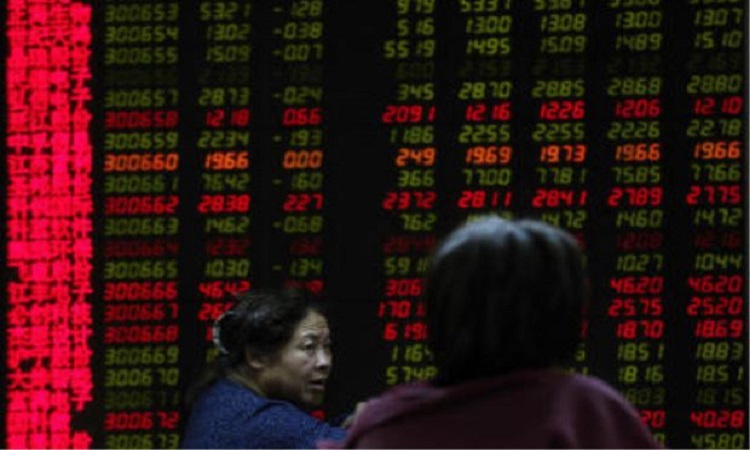China securities industry braces for influx of foreign competition

UBS China head Eugene Qian expressed concern about the cutthroat competition that keeps dragging down prices and threatening profitability.
HONG KONG: Chinese securities firms are racing to prepare themselves for an influx of foreign competitors, as Beijing opens up the domestic market to help resolve the trade war with the United States.
With many brokerages suffering shrinking revenues at home, a new round of consolidation in the domestic industry is expected next year to enable them to better compete with experienced foreign firms.
Citic Securities, the country’s largest securities firm in terms of both assets and profits, stirred the industry on Tuesday by announcing its attempt to take over loss-making Guangzhou Securities.
The deal came just a day after UBS Securities finished raising its stake in its Chinese joint venture to 51 per cent, although there is no direct link between the two.
The Citic takeover bid came as Beijing is speeding up the process of opening the financial market to foreign competition – JPMorgan and Nomura have followed UBS in applying to take controlling stakes in local joint ventures.
It would also be the biggest transaction in China’s crowded securities brokerage industry since China International Capital Corp absorbed China Securities in November 2016 for 16.7 billion yuan (US$2.4 billion).
Zhao Xijun, deputy dean of the school of finance at Renmin University of China, said domestic players were too small in terms of assets to compete effectively with Wall Street investment banks, and needed to strengthen their business operations and grow in size to handle market risks and provide better financial services.
He sees concerns in the domestic industry about foreign firms having a bigger presence in China as similar to the “wolf is coming” fears expressed in 2001 when China entered the World Trade Organisation.
“It’s a chance to encourage [local firms] to sharpen their competitive edge,” Zhao said.
“The key is to make oneself stronger by merging with others or by some other means. You can scare away wolves if you become a tiger.”
James Chang, head of PwC’s financial services consulting business in China, said the domestic brokerage market was too crowded and in need of a shake-up.
“Why do we need so many securities firms? Even in a mature capital market like the United States, there are only a few large players,” he said.
By comparison, China’s domestic securities brokerage market included 130 firms as of the end of 2017, with only a small presence for foreign competition.
China’s closed capital account and rigid regulations have until now prevented US and European investment banks from accessing onshore Chinese clients.
Beijing has approved only 11 joint ventures between domestic and foreign firms, with the foreign ownership stake capped at 49 per cent.
These joint ventures are marginal players and are not making much money. According to a survey of 98 brokerage houses by the Securities Association of China, Morgan Stanley’s joint venture ranked No 61 in terms of 2017 revenues, followed by Goldman Sachs’ joint venture at No 72 and UBS’s venture at No 73.
Given Beijing’s renewed urgency to respond to US demands to resolve the trade war, the Chinese government has accelerated the process of opening the onshore brokerage services market to foreign competition.
Chinese President Xi Jinping told a forum in Hainan in April that the wider opening of securities services, along with insurance and banking, would be a key part of the country’s new round of opening up.
The response from foreign investors has proved lukewarm so far. UBS is the only foreign investor that has successfully obtained a controlling stake in a local joint venture – a step that can only in theory offer UBS control over the venture and doesn’t guarantee business success in a highly competitive market.
Chang at PwC said a controlling stake would allow foreign investors to take over management and transplant their expertise in risk control, compliance and innovation to the local ventures, but challenges remained as they still needed to navigate China’s local market and regulatory system.
“They can’t simply copy European or US management models or products because the Chinese market is different in terms of investors, products and regulatory regime,” he said.
Morgan Stanley Huaxin, the joint venture in which the Wall Street house has a 49 per cent equity stake, reported a loss of 70 million yuan in 2017.
The joint venture’s major shareholder, Huaxin Group, listed a 2 per cent equity stake in the joint venture for sale in October. If Morgan Stanley gets permission to buy that stake, it would gain a controlling 51 per cent stake in the firm.
Citigroup Global Markets Asia announced this month that it would sell its 33.33 per cent stake in Shanghai-based Orient Securities, ending a seven-year partnership and paving the way for Citigroup to set up a new joint venture – Beijing generally only allows one joint venture for every foreign securities firm.
It is not easy to make money in China’s domestic investment banking industry, given combined revenues are shrinking amid a sluggish A-share market.
In the first nine months of this year, the combined revenues of all securities firms in China, including revenues from brokerage, underwriting and consulting, were just 189 billion yuan, according to the Securities Association of China.
The association indicated full-year revenues in 2018 would be much smaller than the 311 billion yuan earned in 2017 and continued the downtrend from 328 billion yuan in 2016 and 575 billion yuan in 2015.
“We don’t expect profits from the fiercely competitive brokerage businesses. It’s just necessary to achieve synergy in a variety of businesses, and we will mainly target institutional rather than retail clients,” an executive at a non-Chinese brokerage firm, who declined to be identified, told the South China Morning Post.
Speaking at the 2018 Global Wealth Management Forum on December 1, UBS China head Eugene Qian expressed concern about the cutthroat competition that keeps dragging down prices and threatening profitability.
“The entry of foreign businesses will accelerate domestic consolidation. The China market can hardly accommodate 130 securities firms,” he said. – SCMP






